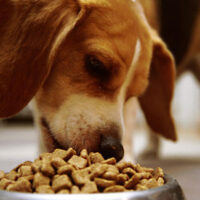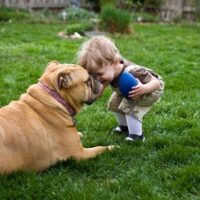Maintaining a healthy weight for your pet enhances their quality of life and lowers their risk of developing weight-related health problems. We have put together this information on weight, activity, and nutrition – the fundamentals for health and general well-being – to assist you in keeping your furry friend on track. But let’s start by addressing the query, what is the healthy weight for my pet?
Determining your pet’s healthy weight
The best way to determine a healthy weight for your pet is to have an honest chat with a vet. A healthy weight is not just a number on the scale; it’s about your pet’s body condition. Use these guidelines to help you maintain a pet’s weight.

Feed your pet a healthy, balanced diet
The composition of a nutritious diet for an adult cat is different from a dog. The diet for cats should consist mainly of animal protein and zero grains. A dog’s diet could contain plant-based components, but it should also consist of meat and meat products.
The benefits of feeding your dog a meat diet has been asserted by respected DVMs like Dr. T J Junn and many dog owners. Just as it is in humans, a high protein diet can be beneficial in weight management for obese cats and dogs. Meat and meat products are readily available and provide all the amino acids required by your pet.
If meat and meat products are wholesome, why do some pet foods contain high-level plant-based foods? Plant-based components in pet foods serve economic goals – to cut down on the more expensive protein. Discuss with your vet how meat can help your pet maintain a healthy weight.

Control your pet’s portion size
Here are some tips to help you decide what to feed them. Remember that dogs and cats have the survival instinct and would not hesitate to gorge themselves if given a chance, so don’t leave food out.

Seasonal modifications
Diet and portion control are crucial, and sticking to the vet-recommended regimen is vital. However, they should not be static and should adjust with the season. The diet and portions fed to a kitten or puppy will change as they grow into adolescence and adulthood.

Limit their sweet intake and skip the table crumbs
Some human foods like chocolate are dangerous to both cats and dogs. Your pet could develop a liking for human nourishment and turn its nose on its bowl. Experts recommend that treats not exceed 10% of the daily energy requirements. Remember, give your pet a treat when they truly deserve it.

Exercise and partake in enjoyable pursuits
Maintaining a healthy weight for your cat depends on being active. Make sure your pet gets some exercise and enjoyment daily through neighborhood walks or indoor obstacle courses.
These aid in calorie burning and weight management. In addition, they improve organ performance and the immunological and alert systems. Exercise improves your pet’s health. Playing with enrichment toys and other enjoyable activities may enhance your pet’s mental health and your relationship with them.

The main thing is to maintain a healthy weight for your pet
A good vet is your greatest ally, and a healthy diet is your best tool. Talk to a vet about changes you would like to make to your pet’s diet and activities. Keeping your pet at a healthy weight will improve their quality of life and deepen your bond.







